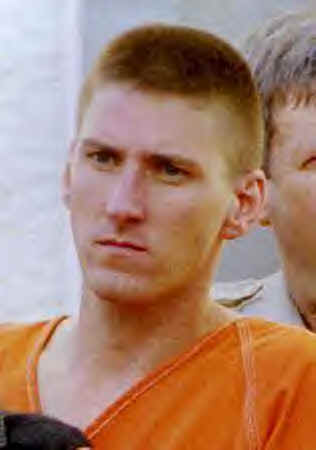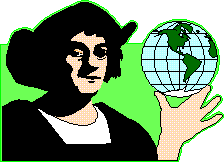 Another Stereotype of the Month entry:
Another Stereotype of the Month entry:
 Another Stereotype of the Month entry:
Another Stereotype of the Month entry:
Taking back America – David Horowitz on (and on and on) Indians
Posted: May 20, 2002 -- 12:00pm EST
by: Suzan Shown Harjo / Columnist / Indian Country Today
The rallying cry for today's white movement of disparate interests, from the genteel and well-heeled white supremacists to the skinheads and crackers is "Let's take back America!" They look down on each other, but are united by the thinking that the country is overrun by racial and ethnic minorities and needs to be reclaimed.
The clever people in the white movement do not talk about it that way. They say they want the government and everybody to stop counting, hiring or making decisions about anyone on the basis of race (that is to say, anyone else's race).
The "take back America" crowd has shamelessly and illogically claimed the catastrophic events of 9-11 as a justification of their agenda, which they disguise in such civil-rights terms as "equal opportunity" and "level playing field." But anyone who has been on the receiving end of bigotry can detect it through the code words and secret handshakes.
The Indian item on their agenda is plain: abolish Indian treaties, tribal governments and jurisdictions, Indian status property and federal trust laws.
One of the white movement's best politicians is author David Horowitz. He started off the new century by lobbing incendiary devices on 70 college campuses in the form of provocative ads opposing reparations for slavery, then feigned surprise at the predictable response. In a Feb. 21 speech at Villanova University in Pennsylvania, he called this an "experiment to see if you could address an issue which the left thinks is vital to its cause and an issue involving race, and engage in a civil dialogue about it."
One of the loudest of the 1960s Berkeley leftists, Horowitz has since denounced his former politics and friends with a level of animus more commonly seen in hotly contested divorces. Mentor to conservative soul mates, including author Ann Coulter, he makes a living taking potshots at everyone in the world, except fellow wing-nuts, then squeals at the mildest backfire.
Horowitz says he is now "the subject of a national hate campaign." He says the real issue was "Do we as citizens — black, white, whatever — owe a debt to this country? After 9-11, we all have an understanding for why this matters. All America understands this, because every American who is not black can be the target of an attack like this."
It is likely that playwright Edward Albee had just such a whiner in mind when he rewrote the nursery rhyme line as, "Georgie, Porgie, Put Upon Pie."
In the body of his speech at Villanova, Native Peoples were not even a footnote, merely a gratuitous swipe along the way to another point: "Black people are the oldest Americans — I mean, the oldest are probably the Indians — it's politically correct to call them Native Americans — except they don't consider themselves Americans. They think they have independent nations."
When Horowitz finished his speech, a white student asked this question: "I was talking to some University of Penn students yesterday — and I'm a big-time pro-American, I love America — and this black guy comes up to me and says, ‘What about the Indians, what about the slaves?' — all these bad things America's done ... But, what are some good answers I can tell him, because we did some pretty bad things to the Indians."
Horowitz interrupted the student with a diatribe about Indians: "One of the worst things we did for the Indians was setting them up in independent nations on these reservations where they, you know, live in absolute squalor and alcoholism and what not."
There it was again, Horowitz mocking tribal sovereignty and nationhood, which is inherent and recognized in U.S. law, as some foolish Indian notion or failed federal program. He continued, dismissing other factors that led to conditions of poverty and dysfunction:

"There is no nation on earth — black, white, whatever it is — that wasn't built on a conquest. The tragedy of the American settlement is one of the less embarrassing tragedies, if I can put it that way, of the founding of nations. A third of the Indians, for example, died of probably smallpox before the Pilgrims ever landed, because European sailors had landed on — and, you know, they had smallpox and the Indians got it — and they didn't have any immunity to it.
"The Indians paid us back, by the way, by spreading syphilis to Europe. Are we going to blame the Indians ‘cause we got syphilis because they had it first?"
Where to start? The Europeans sailors and their rats and fleas lurched upon our shores with smallpox, plague, influenza, measles, mumps, tuberculosis and syphilis. Syphilis was rampant in Europe. Over ten years ago, scientists found the oldest evidence of syphilis anywhere in the world, in Greece, a few thousand years before 1492.
The European diseases quickly spread throughout the Western Hemisphere, wiping out whole nations — 500 at a minimum — and nearly obliterating hundreds more. No one knows how many Native people died from the foreign diseases or were murdered or were killed in battle.
It's a cold point Horowitz makes that, because many succumbed to disease, it was "less embarrassing" and the "tragedy of this encounter" was that Indians were "a Stone Age people." Horowitz knows better than that, but it's a point that appeals to the sense of racial superiority and Manifest Destiny in the white movement.
"I happen to have written a book about the early Indian wars, so I know what I'm talking about here," he said.
Oh, well, the white guy wrote a book and that makes him an Indian expert. In a very young child, such arrogance piled atop so much ignorance might be laughable. In a grown-up — especially in a setting where students may believe his distortions are our reality — the combination is anti-intellectual and dangerous.
Horowitz kept talking. He was a film critic, recommending the racially biased, inaccurate "Black Robe" as "wonderful." He was a medical researcher, concluding that "Indians are genetically prone to alcoholism." He opined (wrongly) on the decline of animal populations and Indian economies.
In mid-rant, he seemed to remember the question:
"Where there really bad things done? You know, everybody knows the smallpox in the blankets. Were Indian treaties betrayed? Well, of course. This was an expanding civilization. The Indians had a static one. They needed huge areas of land, you know, they practically exterminated the buffalo, also, by running them off cliffs."
Ah, Indians were the ones who nearly drove the buffalo to extinction. So, those 7,500,000 buffalo that the U.S. Army estimated that white hunters killed between 1872 and 1874 alone were just part of a little herd-thinning program.
And Horowitz went on and on, still responding to the same question.
"When people come at you like that, what they're doing is picking one little piece of the puzzle. You might say, you know, what have the Indians — you know, there are three million Indians, almost as many now as there were at the time of the settlement. I hate to say this, but if you want to throw something in their face, you know, what have the Indians produced in the last 300 years but casinos?"
For starters, Native people have produced an extraordinary body of fine art and a literary and legal canon that is particularly impressive in light of what was going on contemporaneously. We can only imagine what might have been produced if white supremacists had not murdered some of our greatest visionaries, brainwashed and tortured generations of our children, stolen our treaty-guaranteed land and water and destroyed our natural economies.
"If you really care about Indian people," said Horowitz, "you will want to get them off the reservation and into the American economy .... You want them to learn how to speak good English ...."
At long last, he wrapped it up, demonstrating his own mastery of the language:
"Uh, you know, people who want — you know, uh, Indian culture — it's nice in museums, it's probably nice, you know, around the campfire, but, uh, you know, it's not — in a computer age, it's not going to bring these people into a world where they can enjoy, uh, you know, the pleasures that, from the looks of you, most of the people in this room do enjoy."
After a few more questions and shorter answers, it was over. One of the student hosts thanked Horowitz and sent the audience off with, of course, "Let's take back America!"
Suzan Shown Harjo, Cheyenne and Hodulgee Muscogee, is president of the Morning Star Institute in Washington, D.C., and a columnist for Indian Country Today.
©2001 Indian Country Today

Rob's comment
Harjo did a nice job of demolishing Horowitz's ignorant rants. A few more nails in the coffin:
>> it's politically correct to call them Native Americans — except they don't consider themselves Americans. They think they have independent nations. <<
One, most Native Americans are indifferent to the term "Native Americans," preferring to be known by their particular tribes. Two, they tend to consider themselves the best and truest Americans, since they were here first and didn't lie, cheat, or steal to take over the continent. Three, they do have independent nations—or would, if the white, Christian, American government upheld the laws and treaties it wrote.
>> One of the worst things we did for the Indians was setting them up in independent nations on these reservations where they, you know, live in absolute squalor and alcoholism and what not. <<
Whether Native nations are truly independent now, they were independent before the US government "set them up" (i.e., locked them up) on reservations. The government tried to diminish their independence, not create it. Indians would've been happy not to have been forced into concentration camps—er, reservations. Their preferred option was to live free in the large regions granted them by legally-binding treaties—treaties the thieving Americans quickly broke.
>> There is no nation on earth — black, white, whatever it is — that wasn't built on a conquest. The tragedy of the American settlement is one of the less embarrassing tragedies, if I can put it that way, of the founding of nations. <<
Osama bin Laden will be glad to know Horowitz approves of conquest as a way to build nations. At most, Horowitz apparently finds Bin Laden's attempts at conquest "embarrassing."
If genocide against millions of Indians is one of the "less embarrassing tragedies," one shudders to think what Horowitz would consider one of the more embarrassing tragedies.
>> A third of the Indians, for example, died of probably smallpox before the Pilgrims ever landed <<
Was Disease the "Big Killer"?>> Were Indian treaties betrayed? Well, of course. This was an expanding civilization. <<
Apparently "expanding" is a synonym for "untrustworthy" or "immoral."
>> I hate to say this, but if you want to throw something in their face, you know, what have the Indians produced in the last 300 years but casinos? <<
Beyond Harjo's summary of accomplishments, what did Indians need to produce? It's a Western/American conceit that producing things gives life meaning.
A better question is what the Indians didn't produce. No Holocaust, no nuclear bombs, no World Wars, no global empires, no global warming, no polluted skies or oceans, no Chernobyls or Three Mile Islands, no human-created poverty or hunger, no homelessness, no AIDS....
>> "If you really care about Indian people," said Horowitz, "you will want to get them off the reservation and into the American economy...." <<
One, some 60-75% of Indians already are off the reservation. They live in places called "cities" and "suburbs" just like Americans like Horowitz. Two, it might be news to all the non-Indians in rural America—the farmers and so forth—that they're not part of the American economy.
>> You want them to learn how to speak good English .... <<
Yes. Otherwise they'll grow up to be like Horowitz or George W. Bush. Look where their mangled syntax got them.
Actually, you can rest assured that all 560+ federally recognized tribes, and the unrecognized ones too, teach their children English. Horowitz's suggestion that they don't shows how ignorant he is of what he's talking about.
>> Uh, you know, people who want — you know, uh, Indian culture — it's nice in museums, it's probably nice, you know, around the campfire, but, uh, you know, it's not — in a computer age, it's not going to bring these people into a world where they can enjoy, uh, you know, the pleasures that, from the looks of you, most of the people in this room do enjoy. <<
Index of Native American resources on the Internet
Gaming and other Indian news
Native News daily archive
Indianz.com
Indian Country Today
'Nuff said.
Related links
This ain't no party: a Columbus Day rant
The myth of Western superiority
Native vs. non-Native Americans: a summary
|
. . . |

|
All material © copyright its original owners, except where noted.
Original text and pictures © copyright 2007 by Robert Schmidt.
Copyrighted material is posted under the Fair Use provision of the Copyright Act,
which allows copying for nonprofit educational uses including criticism and commentary.
Comments sent to the publisher become the property of Blue Corn Comics
and may be used in other postings without permission.